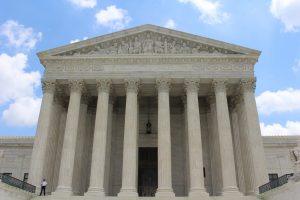 On September 20, 2016, the Special Needs Trust Fairness and Medicaid Improvement Act (H.R. 670) (the “Act”) passed the House of Representatives. This bill corrects an omission in Section 1917(d)(4)(A) of the Social Security Act created in 1993 when first-party or self-settled special needs trusts were first recognized by Congress. Under 42 U.S.C. 1396p(d)(4)(A), an individual under age 65 who is disabled, may have assets, which are deemed to be theirs (such as assets received from an inheritance or as a result of a personal injury settlement), set aside for their benefit in a trust that is created by a parent, grandparent, legal guardian or the court. Noticeably absent from that list was the disabled individual being permitted to set up the trust themselves. Over time what has been realized is that a disabled individual does not always lack capacity to create a trust, so the Act amends 42 U.S.C. 1396(d)(4)(A) by inserting the words “the individual” into the list of people who can establish this type of trust.
On September 20, 2016, the Special Needs Trust Fairness and Medicaid Improvement Act (H.R. 670) (the “Act”) passed the House of Representatives. This bill corrects an omission in Section 1917(d)(4)(A) of the Social Security Act created in 1993 when first-party or self-settled special needs trusts were first recognized by Congress. Under 42 U.S.C. 1396p(d)(4)(A), an individual under age 65 who is disabled, may have assets, which are deemed to be theirs (such as assets received from an inheritance or as a result of a personal injury settlement), set aside for their benefit in a trust that is created by a parent, grandparent, legal guardian or the court. Noticeably absent from that list was the disabled individual being permitted to set up the trust themselves. Over time what has been realized is that a disabled individual does not always lack capacity to create a trust, so the Act amends 42 U.S.C. 1396(d)(4)(A) by inserting the words “the individual” into the list of people who can establish this type of trust.
Last year, the Senate passed the Special Needs Trust Fairness Act of 2015 (S. 349), which made the same change. Unfortunately, since these new provisions were part of separate pieces of legislation, the provisions cannot yet be signed into law. Various supporters of the new provisions are now working with the Senate to ensure the provisions ultimately do become law. But what is promising for many is that the provisions of the Act, once signed into law, will do away with the need for court involvement every time a disabled adult wants to create a special needs trust and will instead allow the disabled adult to have some control in his or her public benefits planning. #specialneedstrusts #selfsettledtrusts #estateplanning @bgnthebgn

 An
An  On October 1st (unless otherwise noted) a number of new laws will take effect in Maryland that may have an impact on you or those with whom you work. Below is a summary of a few key pieces of legislation of which you should be aware.
On October 1st (unless otherwise noted) a number of new laws will take effect in Maryland that may have an impact on you or those with whom you work. Below is a summary of a few key pieces of legislation of which you should be aware. Since 1978 the United States has celebrated
Since 1978 the United States has celebrated  With Gene Wilder’s death, the family released a
With Gene Wilder’s death, the family released a